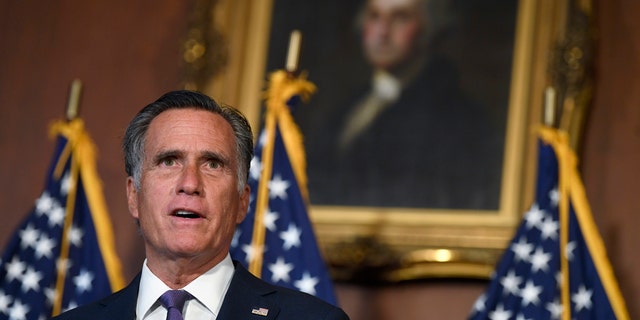Sen. Ed Markey drew backlash from fiscal hawks like Sen. Ted Cruz on Monday after tweeting an ambitious coronavirus stimulus plan that would involve much larger checks paid much more frequently than other proposals — but it’s hardly the first time such an idea has been floated as legislators trip over themselves to propose sweeping cash handouts to help Americans in dire financial straits during the pandemic.
“Give every person in our country $2000/month for the duration of the pandemic, $2000/month for 3 months after that, and $2000/month retroactive to March,” Markey, D-Mass., tweeted, summarizing a bill he put forward in early May. Sens. Bernie Sanders, I-Vt., and Kamala Harris, D-Calif., co-sponsored that bill with him. Politico first reported on the legislation.
TRUMP SAYS SCHUMER, PELOSI ‘WANT TO MEET TO MAKE A DEAL’ ON CORONAVIRUS RELIEF
Markey’s tweet was rebuked by Cruz, R-Texas, who has been one of the fiscally conservative senators making life hard on GOP leadership in the Senate as lawmakers try to hash out some sort of agreement on a new coronavirus relief bill. From the start of the crisis, members of Congress mostly have avoided discussing the notion of how to offset the new spending.
“Why be so cheap? Give everyone $1 million a day, every day, forever. And three soy lattes a day. And a foot massage. We have a magic money tree — we should use it!” Cruz snarked.
Markey fired right back, tweeting: “It’s not a goddamn joke Ted. Millions of families are facing hunger, the threat of eviction, and the loss of their health care during a pandemic that is worsening every day. Get real.”
Markey is hardly alone in backing sustained direct aid for Americans during the pandemic — Cruz’s Senate unanimously supported the CARES Act that previously gave $1,200 payments to Americans, and even Republicans are largely supportive of another round of payments.
TED CRUZ CONDEMNS OPRAH COMMENTS ON WHITE PRIVILEGE: ‘UTTER, RACIST BS’
That’s upset some of Cruz’s conservative allies in the Senate, like Sen. Rand Paul, R-Ky., who has quipped that he felt like he was in the wrong room after leaving Republican caucus lunch meetings — saying, for example, that it was like a “Bernie bros” meeting. It’s widely understood that many Americans need help from a government level during the crisis. The concern for some, however, is the already-skyrocketing deficit and debt.
A projection by the Committee for a Responsible Federal Budget earlier this year, after the passage of the $2.2 trillion CARES Act, estimated the federal deficit would be $3.8 trillion in 2020 and $2.1 trillion in 2021. That is likely set to increase with another coronavirus stimulus bill, which could also cost north of $2 trillion — Democrats have asked for about $3 trillion but Republicans are trying to negotiate that number down. The national debt is already more than $26.6 trillion.
Direct payments have been popular from the beginning of the pandemic, if not at the massive scale of the Markey/Sanders/Harris proposal.
Sen. Mitt Romney, R-Utah, as early as March proposed that Americans should all get a one-time, $1,000 check.

Sen. Mitt Romney, R-Utah, speaks during a news conference on on Capitol Hill in Washington, Monday, July 27, 2020, to highlight the Republican proposal for the next coronavirus stimulus bill. Romney was one of the first Republicans on Capitol Hill to back direct payments to Americans. (AP Photo/Susan Walsh)
(Associated Press)
TRUMP POISED TO ADD MORE DEBT THAN OBAMA IN FIRST TERM
Rep. Ro Khanna, D-Calif., and Rep. Tim Ryan, D-Ohio, at about the same time proposed a one-time check that would be between $1,000 and $6,000 per American depending on need. Later, in April, the pair came out with a plan that would give $2,000 to every American over 16 per month for up to a year, and people would be able to get their money through means including Zelle, Venmo, pre-paid debit card and more.
Rep. Tulsi Gabbard, D-Hawaii, came forward with a more modest plan for $1,000 per month.
Eventually, the potpourri of proposals turned into a $1,200 payment for eligible Americans who were not listed as a dependent on another person’s previous year’s tax return and did not make more than $75,000 for individuals and $150,000 for couples. This also came with $600 boosted unemployment benefits for those who were out of work.
Those benefits are now the subject of significant controversy in stimulus negotiations, as Republicans seek to keep any boosted unemployment benefits down, worried that many Americans are making more by not working than they could by working — something that could drag down the recovery.
CLICK HERE TO GET THE FOX NEWS APP
President Trump, in a series of executive actions over the weekend, moved to provide out-of-work Americans with $400 in boosted unemployment aid, fulfilling, if temporarily, that Republican priority.
And when House Democrats released a $3 trillion proposal for an additional round of stimulus in May, it included another round of checks that would pay $1,200 to each family member of a household, up to $6,000.
Republicans put forward a very similar idea in their most recent coronavirus stimulus offering, and Trump has supported it as well, making direct payments a rare bipartisan point of agreement as negotiations on the legislation have flamed out, with Trump over the weekend issuing the executive actions aimed to keep Americans afloat and bring Democrats back to the table.